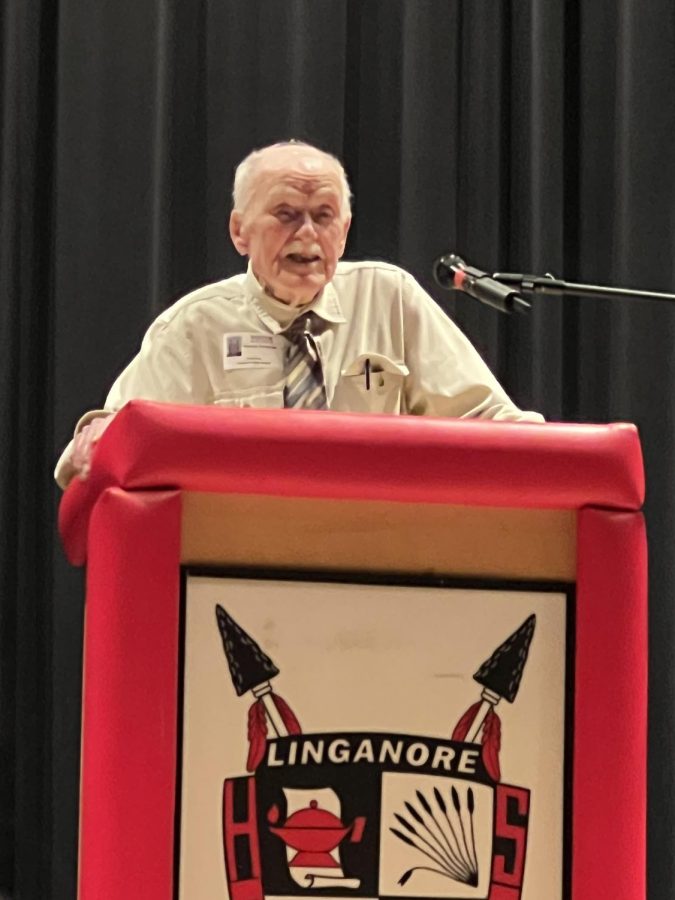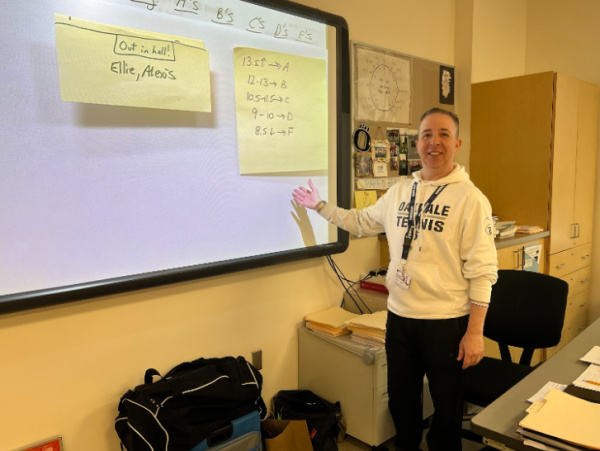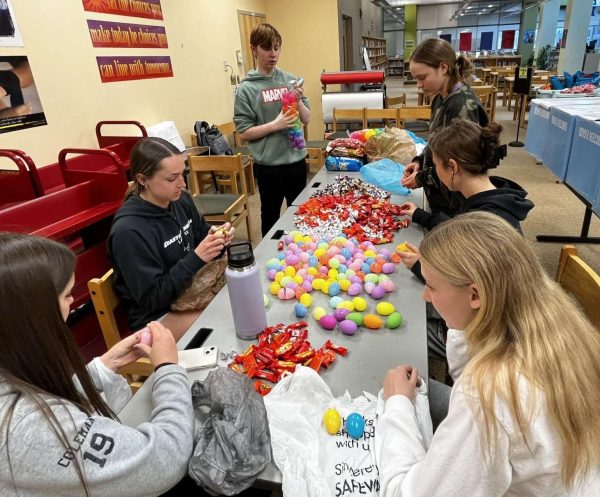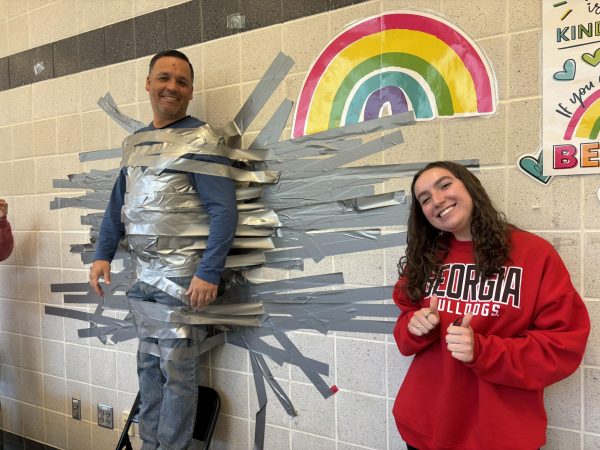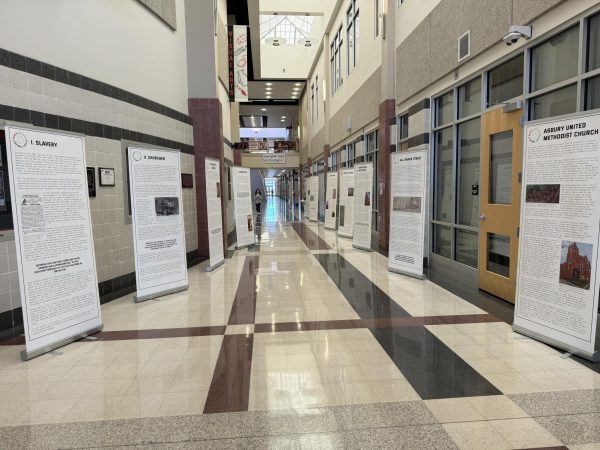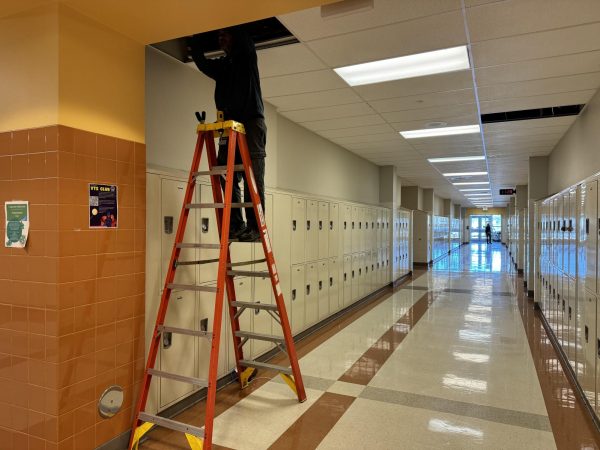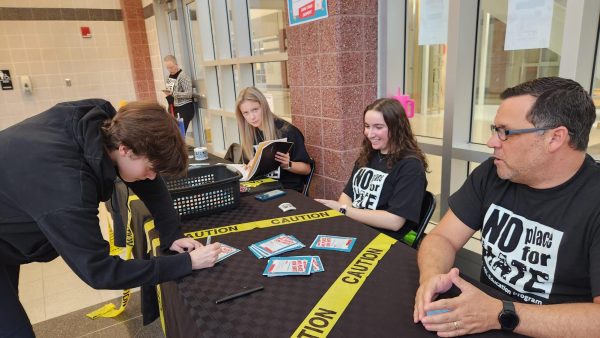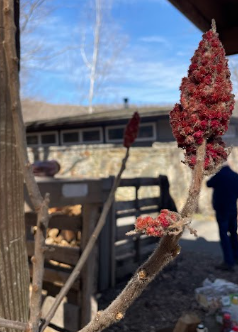Lancer Spotlight 2/28/22: Harvey Zorbaugh speaks about when he marched with Dr. Martin Luther King Jr. in Alabama
Harvey Zorbaugh answers a question asked by a Linganore student during his visit on February 24.
March 2, 2023
From Tuesday Feb. 21 to Thursday Feb. 23, the Linganore High School (LHS) social studies department, with the help of Rho Kappa and the African-American Culture Club showed segments of the movie “Selma” in the auditorium. The film culminated with a visit on Friday, Feb. 24 from guest speaker Harvey Zorbaugh. Zorbaugh, who was in Selma, Alabama to march for civil rights, spoke to students about his experience.
Darren Hornbeck, a Linganore High School social studies teacher, first met 92-year-old Zorbaugh at the church they both attend. There, Zorbaugh gave a speech about overcoming fears and how he did so by attending a march with Dr. Martin Luther King Jr.
Since Zorbaugh had first-hand experience with a major event of the civil rights movement, Hornbeck thought Zorbaugh would be a great guest speaker for Black History Month.
Hornbeck put a lot of planning into the event, showing four promotional advertisements to see “Selma” and meet Zorbaugh through the LHS announcements. The first of the ads aired on Tuesday February 14.
The movie screening not only raised awareness of the civil rights movement but showed the sacrifices of everyone involved through its illustration of the violence that occurred on the Edmund Pettus Bridge in 1965.
On Friday, Feb. 24, Zorbaugh started his speech with a bit of autobiographical and historical context. He shared that he was a teacher in Long Island, New York and currently lives in Columbia, Md, due to its diversity.
Zorbaugh has been a long-time supporter of equality and a member of the NAACP for the majority of his life. He explained that he wanted to attend the March on Washington for Jobs and Freedom with Dr. King but was unable to because he “promised [his] family a vacation in Canada.”
Zorbaugh vowed to be there for the next event. Despite missing the historic March on Washington, Zorbaugh was able to attend Dr. King’s march from Selma to the capital of Alabama, Montgomery.
Zorbaugh made his way down the coast with the help of a friend from Atlanta, Georgia. In the deep south, Zorbaugh had to lie on the floor of the car because if someone saw white and black men traveling in a car together, they could be killed by white supremecist groups. Despite this danger, Zorbaugh reported he was not afraid.
The next day was Thursday, March 25, 1965, the first day of Dr. King’s march from Selma to Montgomery.
Members of Alabama’s national guard were placed along the sides of the path the marchers took, much to the dismay of the soldiers. One of the few times Zorbaugh said he felt fear was when he fell to the edge of the march and walked past a member of the Army National Guard.
“I had never seen somebody so angry,” said Zorbaugh.
After the march, Dr. King wanted to shake the hand of every person who marched, which included Zorbaugh.
Even though the civil rights movement was very successful and occurred decades ago, it still has messages relevant to today.
“We have to understand we constantly have to fight against racism and inequality, and we have to support one another,” said Hornbeck. “I want people to walk away inspired that movements can change things for the better and make the world a better place.”
Zorbaugh agreed that despite the success of the civil rights movement there are still issues with voting, issues that not only apply to African-Americans but to everybody of every race.
“Now we seem to have a whole different set of issues regarding voting … and some people are trying to undermine what I think is a very efficient system of voting,” said Zorbaugh
As the PREP period came to an end, Zorbaugh closed out his speech with some parting words about voting. He reminded students to always do their research before voting and to not let anyone try to take their right to vote away.


